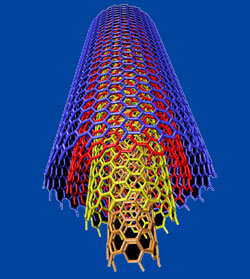The laboratory will specialize in "cold atoms" and nanophotons. This is according to a memorandum of understanding signed between Italy and Israel at the end of the discussions of the scientific-technological forum shared by both countries * Next year a bi-national conference on nanotechnology will be convened

According to Prof. Davidson, the joint research in the laboratory may yield advanced applications in many civilian and military fields such as atomic clocks, time and frequency products and precise measuring devices, which are intended to improve the performance of navigation devices, such as GPS, geological mapping, for example for oil exploration companies, earthquake prediction and even development A quantum computer, which is expected to create a revolution in research and development in industries that depend on the processing of large amounts of information as well as the ability to predict scenarios through complex simulations and trial and error processes. Next year, a bi-national, Italian-Israeli conference will be convened, which will be entirely devoted to research and development in the fields of nanotechnology.
The scientific-technological forum dedicated to Italy and Israel was held at the "David Intercontinental" hotel in Tel Aviv, with the participation of over 30 senior scientists from Italy. It is designed to strengthen industrial, scientific and technological ties between the two countries. The forum presented the achievements of the scientific-technological cooperation between the two countries so far and outlined the way for its strengthening and empowerment in the future.
As part of the forum, five seminars were held on specific scientific topics, which were identified by scientists from both countries as the most promising areas for applied scientific-technological cooperation between the two countries: medicine (with an emphasis on emergency medicine and the prevention of infectious diseases such as hepatitis), nanotechnology (with an emphasis on nano -materials and nanophotons), environmental sciences, technology transfer and complex systems engineering for various uses from robotics to energy. A number of memoranda of understanding were also signed in various fields.
According to the Scientific Attaché at the Italian Embassy in Israel, Dr. Stefano Boccelli, the scientific-technological cooperation between Israel and Italy will register a leap forward in the coming years, especially if a bi-national science fund shared by both countries is established. According to him, the current cooperation between the two countries is anchored in an agreement between the two governments, which was signed in 2000 and entered into force in 2002. This agreement is a framework for supporting short- and medium-term research that has clear industrial applications and is mainly intended for small and medium-sized companies. Since the signing of the agreement, the implementation of 30 joint scientific-industrial projects for the two countries has begun. The Italian government financed this activity to the extent of about 6 million euros.
Dr. Bokelti expressed the hope that following the convention, negotiations will begin between the two countries to establish a bi-national science fund similar to the funds Israel has with the USA and Germany. This is due to the great interest shown by scientists from both countries in establishing such a fund. According to him, such a fund - if it is established - will be another layer in the Italy-Israel science relationship and is intended for basic and applied research that is not necessarily intended for the production of immediate products for industry, but is focused on long-term research on critical issues such as alternative energy and water, food and agriculture, dealing with the climate crisis, nano- technology and more. These are studies that will eventually give birth to new breakthrough technologies, which take a long time to mature, but require the beginning of the research and development process now.
